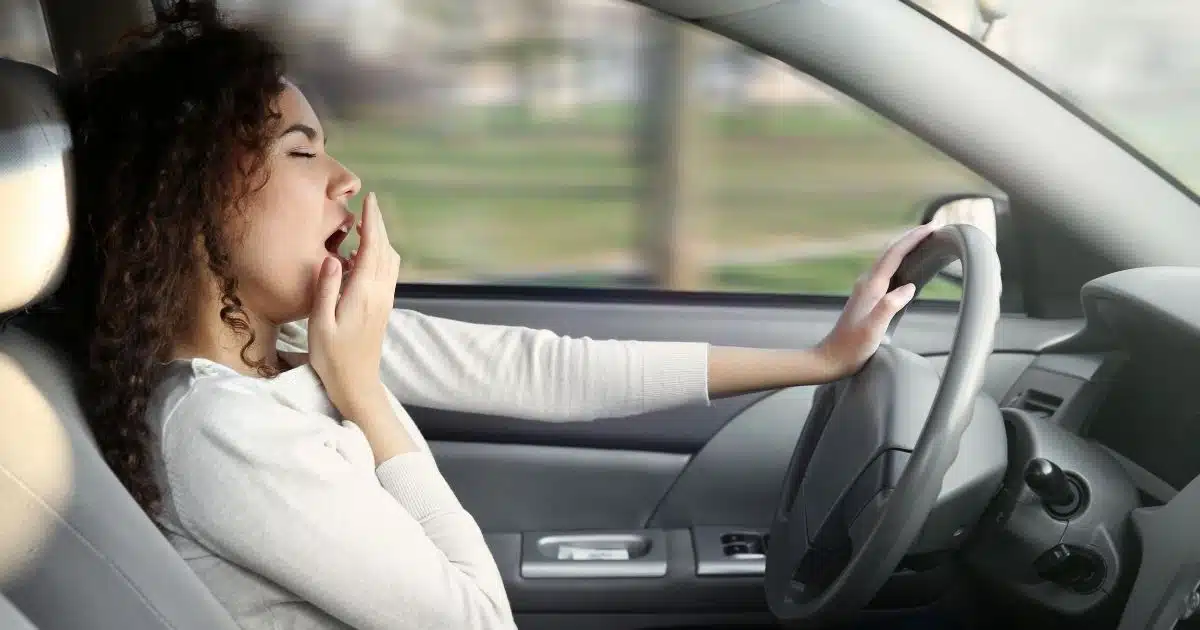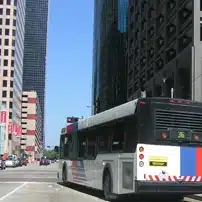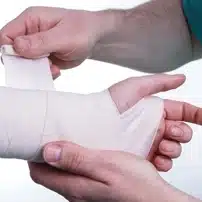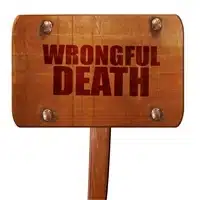It is recommended that the average healthy adult sleep from seven to nine hours per night. The needed amount of sleep is higher for teenagers and young adults, people suffering illness, and people who have recently lost sleep. Of course, all people are different, but failing to take into consideration the amount of sleep you have had before getting behind the wheel of a car could be catastrophic.
Roughly one third of all drivers in the U.S. suffer from a lack of sleep, which means that they are not getting the proper sleep necessary to safely operate a vehicle. The result is too often a car accident. The simple fact of sleep deprivation is that the less sleep a person gets, the more risk that person has of getting into a car accident. The risk of an accident actually doubles after missing just a few hours of necessary sleep. Sleep deprivation is one of the leading causes of preventable car accidents. Unfortunately, it is something that few people ever give careful consideration to, especially those who drive to work on a daily basis or simply have somewhere they must be.
What Happens Exactly When You Are Lacking Sleep?
Sleep deprivation slows a person’s reaction to stimuli; it has much of the same effect as alcohol. This is an especially serious problem while operating a motor vehicle. When sleep deprived, a person’s reaction time to a potential danger slows down. The accuracy of a needed response is also decreased. Moreover, sleep deprivation reduces a person’s ability to stay alert, creating a serious lapse in attention that could easily cause a car accident. Simply put, a driver severely lacking in sleep becomes a driver under the influence: the more a person drinks, the higher the risk; the less sleep, the higher the risk.
What Does Research Show about the Dangers of Driving When Deprived of Sleep?
Although there is no exact science on the correlation between specific amounts of sleep loss and dangers while driving, there are a number of studies that have been done, and all of them share a simple equation: sleep deprivation causes car accidents. It starts with subtracting time from the required amount of sleep a person needs to function normally. All people are different. Some people need seven hours of sleep, some need more.
According to a recent study from the AAA Foundation for Traffic Safety, drivers missing just one to two hours of required sleep in a 24-hour period almost double their risk of having a car accident. More frightening, the report suggests that drivers getting under five hours of sleep have a car accident risk factor comparable to that of a drunk driver.
The report shows the simple equation of less sleep equals more risk. The study compared drivers with less than the required amount of sleep to drivers with the required amount. The results of the study show that a driver getting between six to seven hours of sleep has a 1.3 times greater chance to have a car accident; between five to six hours of sleep, 1.9 times greater chance; four to five hours of sleep, 4.3 times greater chance; and less than four hours of sleep gives a driver an almost twelve times greater chance to have a car accident.
What Are the Symptoms of Sleep Deprivation, and When Do I Know I Am Too Sleep-Deprived to Drive a Car?
Most people are well aware of when they are too tired to drive, but the problem stems from the need to drive. Most people who rely on their own transportation do not want to give up their autonomy of getting behind the wheel, but thinking it through could save you an accident and perhaps your life. Knowing the symptoms of sleep deprivation and connecting them with the ability or lack thereof to drive a car is a good start.
The most obvious of symptoms is the inability to keep your eyes open without a struggle. It is not normal to do so; it therefore requires serious contemplation about whether or not operating a vehicle would be safe. Struggling to keep your eyes open can cause a plethora of problems, but it is important to know that roughly half of all car accidents from a lack of sleep occur without there having been symptoms of struggling to stay awake. You know you have not had enough sleep. You know you are tired. But the symptoms have manifested the way you would expect them to. It is like driving while intoxicated and not being fully aware of it.
A real good sign of being too tired to drive is drifting or jumping lanes, especially if the driver cannot remember how it happened. And that leads to another symptom: forgetting. Forgetting an event on the road or the last few miles driven is a clear “oops, I have a problem!” As mentioned previously, half of all car accidents involving a sleep-deprived driver happen without the driver recognizing any symptoms, but what is extremely eye-opening and frightening is that this is also the case for drivers who fall asleep at the wheel, which often results in death. Any logical person would think that there would always be clear signs of sleep deprivation, but it just is not always the case.
An obvious warning sign is missing an exit. A lack of sleep throws off your ability to not only navigate but also operate routinely. Another obvious warning sign that tells you it is time to pull over is hitting roadside rumble strips. Rumble strips are those milled or raised patterns on the road that produce a vibratory and audible warning to the driver that the vehicle is either going off the road or crossing the centerline.
What if Driving Cannot Be Avoided after a Loss of Sleep?
The best advice is always to avoid driving when deprived of sleep, but with many drivers, unfortunately, that is an unrealistic possibility. Therefore, if you must drive while sleepy, do so during times when you are normally awake; in other words, do not change your driving schedule. Schedule breaks every few hours if you are traveling far. Traveling with a passenger who can take the wheel if necessary, or who can alert you when your driving is erratic, is a good idea as well. Most importantly, however, be sure to stay overnight on long-distance trips rather than attempting to drive straight through. It would also be a good idea to remember to check your medications for side effects of sleepiness, and no matter what, do not drink alcohol before getting behind the wheel.
Bear Car Accident Lawyers at Rhoades & Morrow Represent People Involved in Car Accidents Due to Sleep Deprivation.
The legal ramifications of being involved in a motor vehicle accident could be serious. The handling of such cases could be a frustrating and difficult process. For competent legal advice on any type of motor vehicle accident, call Bear car accident lawyers at Rhoades & Morrow. Our years of experience in this field will provide you with the advice and representation you deserve. Call us at 302-407-0827 or contact us online to schedule a free consultation. We have offices conveniently located in Wilmington, Bear, Milford, and Lewes, Delaware. With offices in all three counties of Delaware, we serve clients throughout the state.





